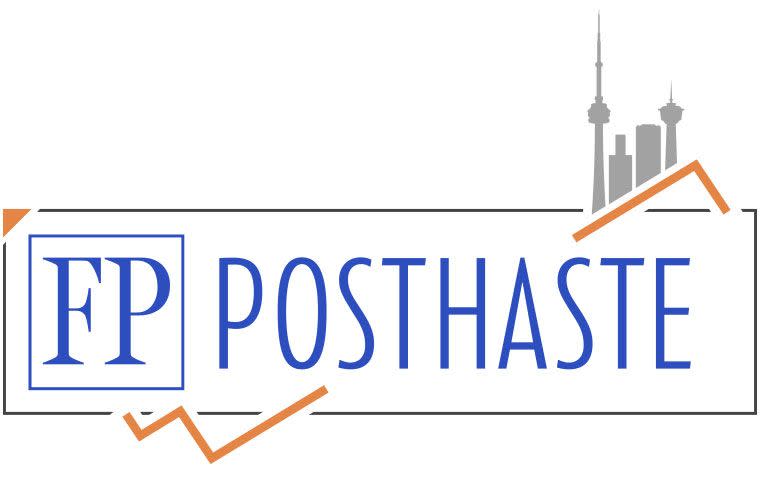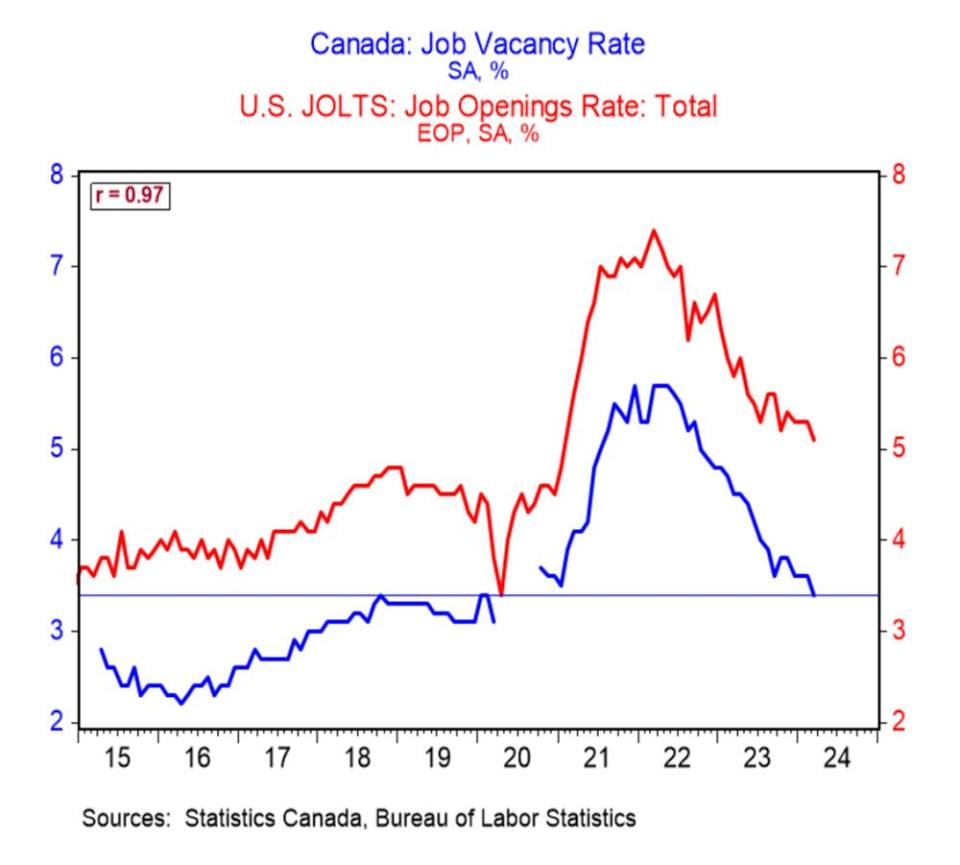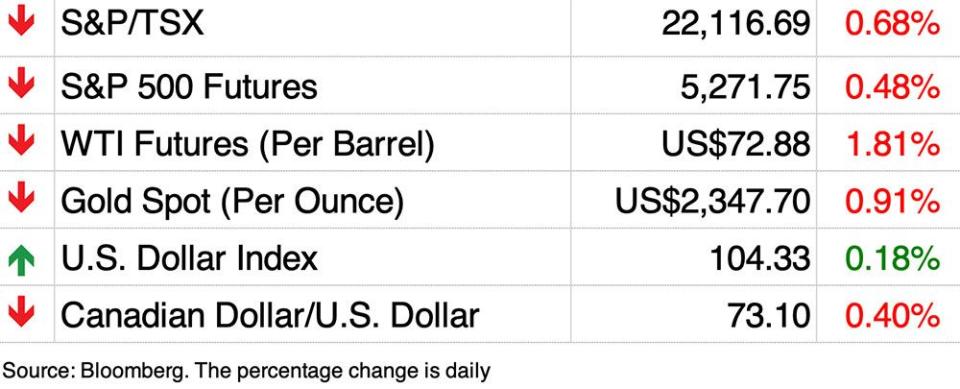Posthaste: Hoping Bank of Canada rate cut will spark housing boom? — don't hold your breath


Canadians looking for a robust rebound in the housing market when the Bank of Canada starts cutting interest rates might be disappointed, say economists.
The psychological boost of a 25-basis-point cut might entice some buyers off the sidelines, but Canada’s housing market still faces stiff headwinds.
A slowing economy, still-high borrowing costs and affordability challenges will limit gains, says Fédération des caisses Desjardins du Québec in its latest housing outlook.
“We’re still assuming that the rebound will begin in earnest only after the worst of the labour market softness is behind us and more meaningful rate relief has been delivered,” said economists Marc Desormeaux, Kari Norman, and Hélène Bégin.
The Bank of Canada will announce its decision on interest rates tomorrow, and while the market and many economists’ predictions are leaning to a cut, the outcome is far from certain.
Join us for a live Q&A on the Bank of Canada’s rate decision on Thursday, June 6 at noon. Register here
Robert Kavcic, a senior economist at the Bank of Montreal, expects a cut is coming tomorrow, but warns that the market reaction “might underwhelm.”
Variable-rate mortgages have made up less than 10 per cent of new lending in the past year, as homebuyers opted for the lower rates of 5-year or shorter-term fixed mortgages, he said.
“So, what’s a 25 bp cut to variable rates going to do given the shape of the yield curve? For actual affordability and the ability to qualify for a mortgage, it won’t do much of anything,” said Kavcic.
“For significant housing stimulus, we’ll need a wholesale rethink of the interest-rate path by the bond market, for both Canada and the U.S. Not there yet.”
One place where rate cuts will be slow to work is aiding Canada’s ambitions to build millions of new homes to ease the country’s housing affordability crisis, says Dejardins.
Not only did home builders see borrowing costs soar under higher interest rates, they also had to contend with higher inflation.
Dejardins said while consumer price index inflation rose 16 per cent between 2020 and 2024, the residential building construction price index soared 59 per cent.
The financial pressure has forced builders to delay or cancel planned developments, while other projects have gone into receivership, said the economists.
More than 21,000 units in 60 projects in the Toronto-Hamilton area have been shelved indefinitely since the 2022 housing market peak, according to Urbanation.
Turning this ship around will take years, even with the recent efforts of federal and provincial governments to support new building.
“We don’t think lower rates will translate into a construction boom,” said the Desjardins economists. “Monetary easing will take time to stimulate projects currently on hold, and Canadian housing construction faces myriad structural challenges.
“These will likely limit our homebuilding and affordable housing ambitions for the next few years.”
Sign up here to get Posthaste delivered straight to your inbox.

Remember the labour crunch after the pandemic when unfilled positions soared to a record high of one million?
Well, the latest payroll survey suggests that’s all behind us now.
Canada’s job vacancy rate dropped to 3.4 per cent in March, right where it was in the first two months of 2020, said Douglas Porter, Bank of Montreal’s chief economist, who brings us today’s chart.
It’s a different story in the United States where the rate is still well above pre-pandemic levels.
“This widening gap in the job vacancy rates is yet another argument for why the BoC can and should deviate somewhat from the Fed,” said Porter.
Shopify Inc. shareholders will vote at the annual general meeting on whether to approve the e-commerce giant’s compensation plan for executives.
Vancouver home sales for MayVancouver home sales for May
Today’s Data: United States factory orders, durable goods orders
Earnings: Bath & Body Works Inc, Hewlett Packard Enterprise Co

To cut or hold interest rates — all eyes are on the Bank of Canada
The government should do more of what works and less of what doesn’t
TD using AI to speed up mortgage applications and code development
It’s been more than four years since the government launched its first COVID-19 relief program, but the courts continue to hear cases brought by taxpayers who have been told to repay benefits they should have never received because they simply didn’t qualify. Tax expert Jamie Golombek has the details of two recent cases where the Canada Revenue Agency won. Find out more
Are you worried about having enough for retirement? Do you need to adjust your portfolio? Are you wondering how to make ends meet? Drop us a line with your contact info and the gist of your problem and we’ll try to find some experts to help you out, while writing a Family Finance story about it (we’ll keep your name out of it, of course). If you have a simpler question, the crack team at FP Answers, led by Julie Cazzin, can give it a shot.
McLister on mortgages
Want to learn more about mortgages? Mortgage strategist Robert McLister’s Financial Post column can help navigate the complex sector, from the latest trends to financing opportunities you won’t want to miss. Plus check his mortgage rate page for Canada’s lowest national mortgage rates, updated daily.
Today’s Posthaste was written by Pamela Heaven, with additional reporting from Financial Post staff, The Canadian Press and Bloomberg.
Have a story idea, pitch, embargoed report, or a suggestion for this newsletter? Email us at posthaste@postmedia.com.
Bookmark our website and support our journalism: Don’t miss the business news you need to know — add financialpost.com to your bookmarks and sign up for our newsletters here.

 Yahoo Finance
Yahoo Finance 




